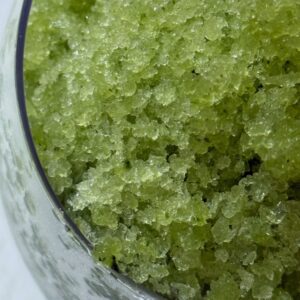
Cucumber & Tremella Granita
A Sicilian-style granita for hot days and hydrated cells When

Kick-start, energise, rejuvenate
All carefully planned and prepared to help nourish, reset and rejuvenate the body and mind.
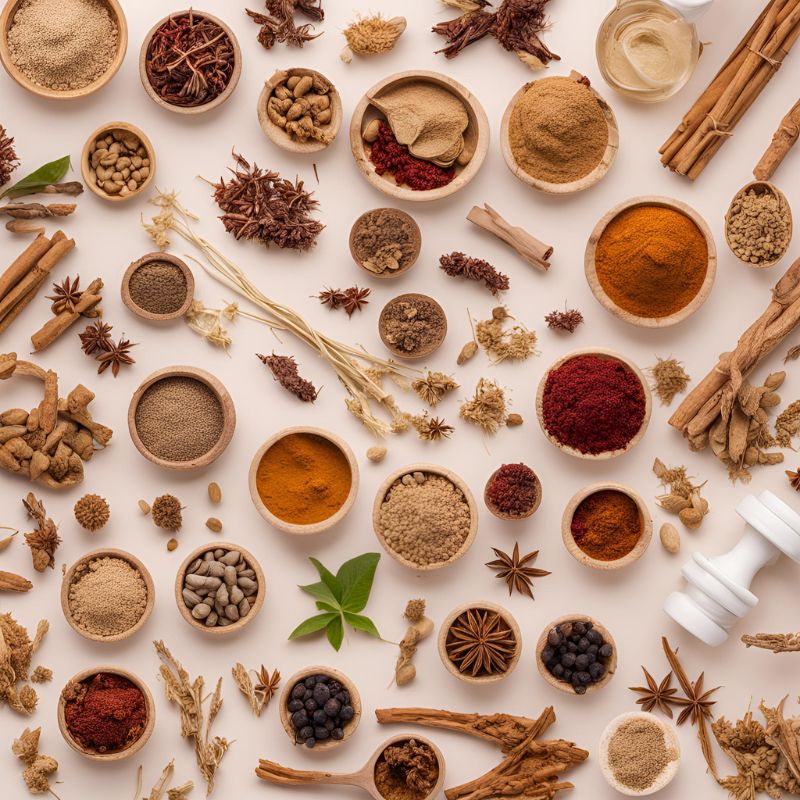
Stress is an epidemic in Australia. In 2023, the State of the Global Workplace report from Gallup showed that 47% of Australians suffer from extreme stress at work, maintaining a record high for the country.
That’s where adaptogens come in. They’re a 100% natural way to manage your body’s stress levels. In this brief guide, we’ll look at what adaptogens are, how they work, and how taking adaptogenic herbs for stress will affect your life.
Adaptogens are plant-based compounds that can be ingested to bring positive effects to the body. There are many different varieties of adaptogens (more on that below) and most of them have multiple positive effects, but the benefits of adaptogens always include stress relief.

Adaptability is a crucial aspect of our lives. The ability to adjust and respond to changes and stress effectively, and maintain balance both internally and externally, determines our well-being and lifespan. A healthy individual can adapt to various circumstances, environments, and situations without noticeable depletion or harm.
Tonic herbs carry an incredible power to aid the body and mind in enhancing our ability to adapt with endurance and accuracy to all types of changes, stresses, and instabilities of modern life. Among the herbs, adaptogens are particularly effective in promoting such adaptability. For thousands of years, adaptogens have been part of us to cope and thrive.
To understand how adaptogens help with stress, you should first understand how stress works.
An endocrinologist named Hans Selye was the first to explain how stress works in the body using a system called General Adaptation Syndrome, or GAS [1]. GAS posits that the process of being stressed outcomes in three steps:
Step 1. Alarm
This is when your body first takes in the stressors and your fight or flight response triggers. Your brain releases adrenaline to help you tackle the stressful situation. It also releases cortisol, a sort of “panic hormone” that further boosts your energy and also regulates blood pressure, among other effects.
Step 2. Resistance
This is the period when your body attempts to return to its pre-stress state. It remains on high alert, but it gradually decreases your cortisol levels, heart rate, and blood pressure. During this “come-down” period, most people demonstrate symptoms like getting irritated more easily than usual or having trouble with deep concentration.
Given that the stressor is removed quickly, the body will have no trouble repairing itself and returning to “homeostasis,” the body’s natural state of equilibrium. In this case, the GAS process will skip the final step.
Step 3. Exhaustion
Unfortunately, many stressors are difficult to remove and will stick around long enough for the body to stop secreting energy hormones like adrenaline and cortisol. That’s when the exhaustion stage happens, and it can bring about more serious symptoms like anxiety, fatigue, insomnia, and even full-fledged depression.
Taking adaptogenic herbs for stress essentially draws out the “resistance” stage of the General Adaptation Syndrome process. One effect that has is allowing for a more gradual return to pre-stress levels, easing the adverse effects of the change. The other effect is that the “exhaustion” stage is held off for longer, giving you more time to solve the problem before the stress gets to you.
There are dozens of varieties of adaptogens, but the seven best adaptogens for stress management, their effects beyond basic stress relief, their country of origin, and how they are normally taken are shown in the table below.
| Adaptogen Name | Effects | Origin | How to Take |
| Ashwagandha [2] | Supports healthy sleep, enhances physical prowess, promotes thyroid health | India | Capsules, powders, teas |
| Rhodiola [3] | Increases neurotransmitters in the brain, improving mood and increasing alertness | Arctic regions | Capsules, extracts |
| Eleuthero/Siberian ginseng [4] | An especially good stress reducer; enhances physical endurance and stamina, memory and concentration | Russia, China | Capsules, powders, teas |
| Schisandra [5] | Reduces fatigue, enhances physical endurance, protects against liver damage | China | Extracts, tinctures |
| Reishi [6] | Calms the mind, improves sleep, prevents inflammation, helps fight chronic disease | East Asia | Teas, capsules, tinctures |
| Gynostemma [7] | Aids in immune function, improves cardiovascular health, prevents cellular damage | China | Teas, capsules, extracts |
| Cordyceps [8] | Increases oxygen uptake, raises energy levels, anti-ageing, improves cognitive function | Tibet, China | Capsules, powders, extracts |
Read more: Herbs for stress.
One of the best things about adaptogens for better health is how easy it is to incorporate them into your everyday life. Almost all of them are either flavourless or positively tasty, and they’re available in easy-to-consume forms. Most commonly, adaptogens are consumed via:
Adaptogenic herbs for stress generally have no side effects. Like anything you put into your body, though, they can react badly with some medications, so you should consult your doctor before taking them.
For more questions about taking adaptogens for better health, visit Shoku Iku’s adaptogen FAQs page.
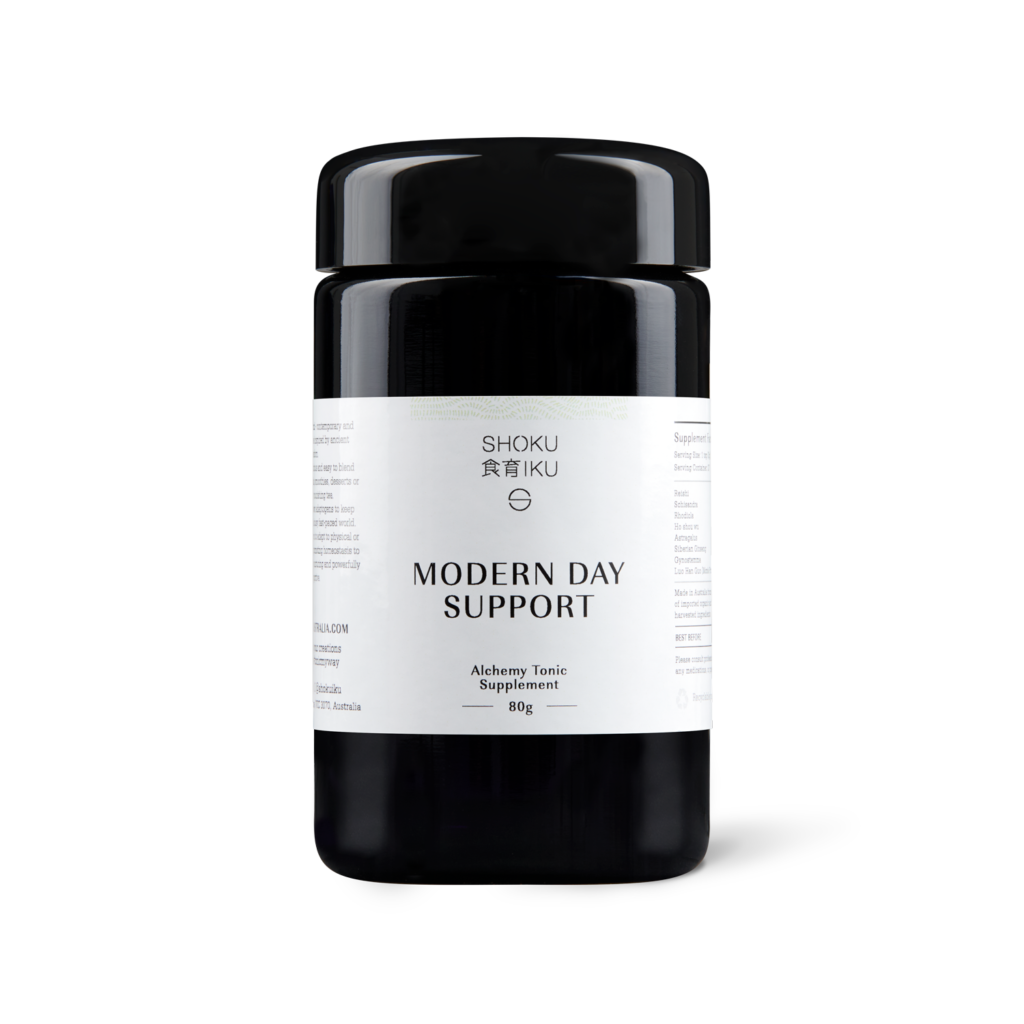
Modern day support: This alchemy blend is formulated with a blend of potent adaptogens that are known to help you adapt to physical or emotional stresses with ease. This supplement is packed with a variety of adaptogenic herbs that work synergistically to promote homeostasis in the body.
Whether you’re dealing with daily stressors or recovering from a recent illness or injury, this supplement can help you maintain your energy levels, improve your mental clarity, and boost your overall well-being.
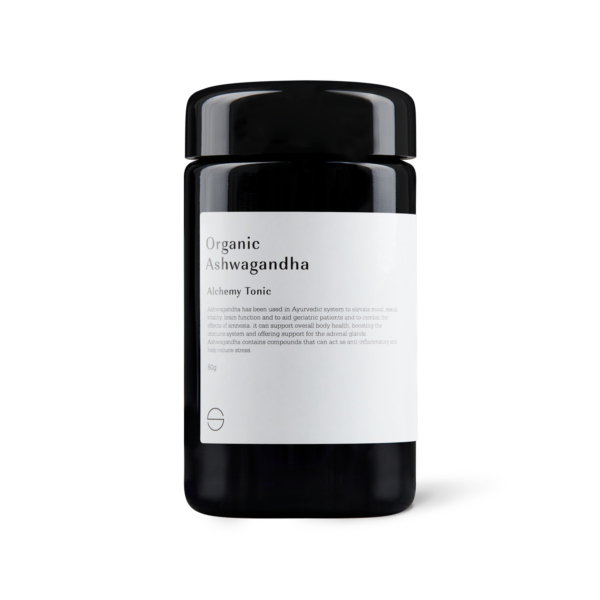
Ashwagandha: Ashwagandha is a powerful adaptogenic herb that has been used for thousands of years in traditional Ayurvedic medicine. It is known to help the body adapt to physical and emotional stresses by supporting the hypothalamic-pituitary-adrenal (HPA) axis, which is responsible for the body’s stress response.
Ashwagandha contains compounds called withanolides, which have been shown to reduce inflammation, regulate immune function, and modulate the levels of stress hormones like cortisol in the body.
In addition to its adaptogenic properties, ashwagandha is also known to support healthy sleep, enhance sexual function, and improve athletic performance. It is a deeply nourishing herb that supports the body’s natural healing processes and helps to promote homeostasis or balance in the body.
It is also helpful with your thyroid health and is one of the first herbs that many herbalists give to children who are going through stress.
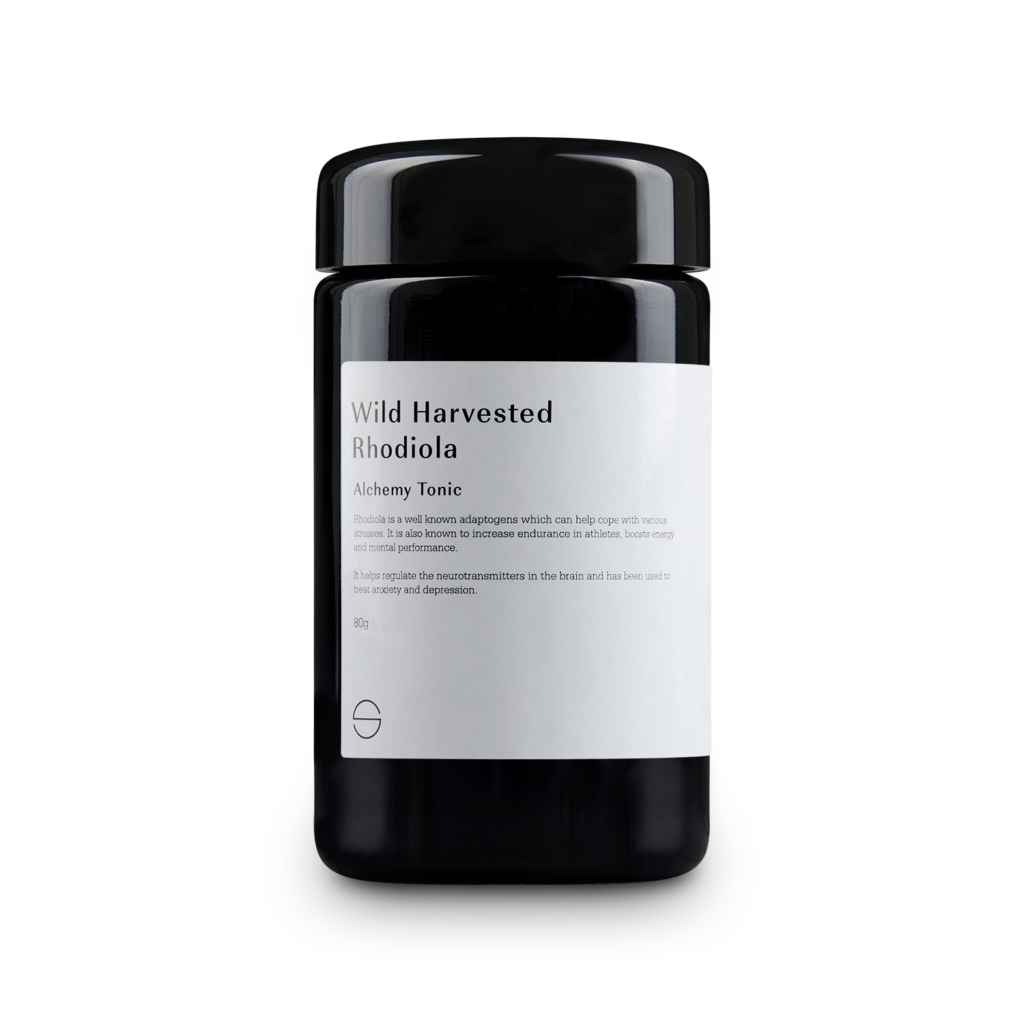
Rhodiola: Rhodiola is a powerful adaptogen that improves your resiliency.
One of the key ways that Rhodiola works are by helping to balance the stress hormone cortisol in the body. Cortisol is released in response to stress, and chronically high levels of cortisol can lead to a variety of health problems, including weight gain, fatigue, and impaired immune function.
Rhodiola has also been shown to improve mental performance and reduce fatigue. It has been used to enhance mental clarity, focus, and memory. It is believed to work by increasing the levels of neurotransmitters in the brain, including dopamine, norepinephrine, and serotonin. This helps to improve mood, reduce anxiety, and increase mental alertness.
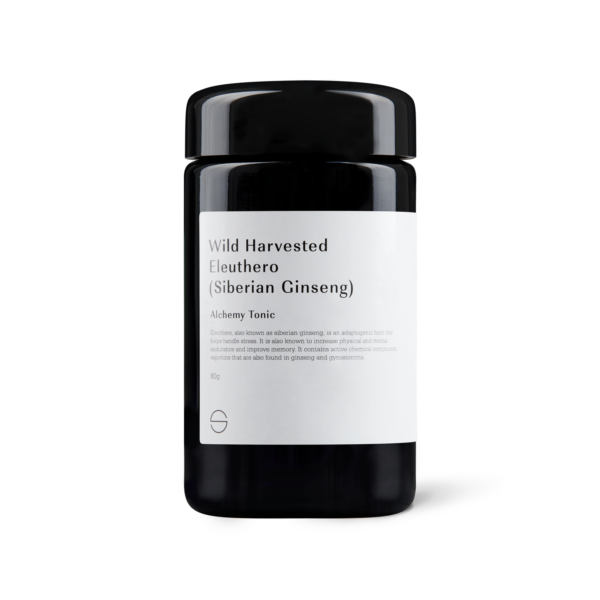
Eleuthero/Siberian ginseng: Eleuthero is particularly effective in supporting the body’s response to stress. It helps to balance the production of stress hormones, such as cortisol, and helps the body adapt to physical and emotional stressors.
In addition to its adaptogenic properties, eleuthero is also known for its ability to enhance endurance and stamina. It has been used by athletes and bodybuilders to improve physical performance and reduce recovery time after exercise. It may also help to improve cognitive function, including memory and concentration.
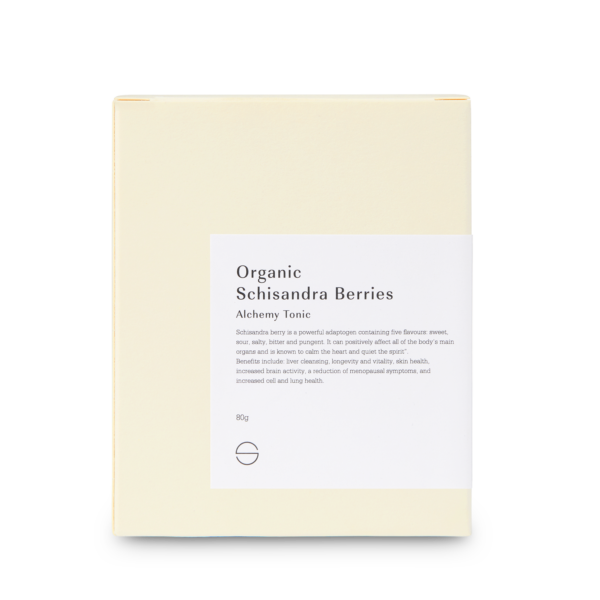
Schisandra: Schisandra contains a variety of compounds, including lignans, schisandrin, and deoxyschisandrin, which are thought to be responsible for its adaptogenic effects. These compounds help to regulate the body’s stress response by modulating levels of stress hormones like cortisol and reducing oxidative stress caused by free radicals.
Studies have shown that schisandra can improve mental performance, reduce fatigue, and enhance physical endurance. It has also been shown to improve liver function, protect against liver damage, and improve overall immune function.
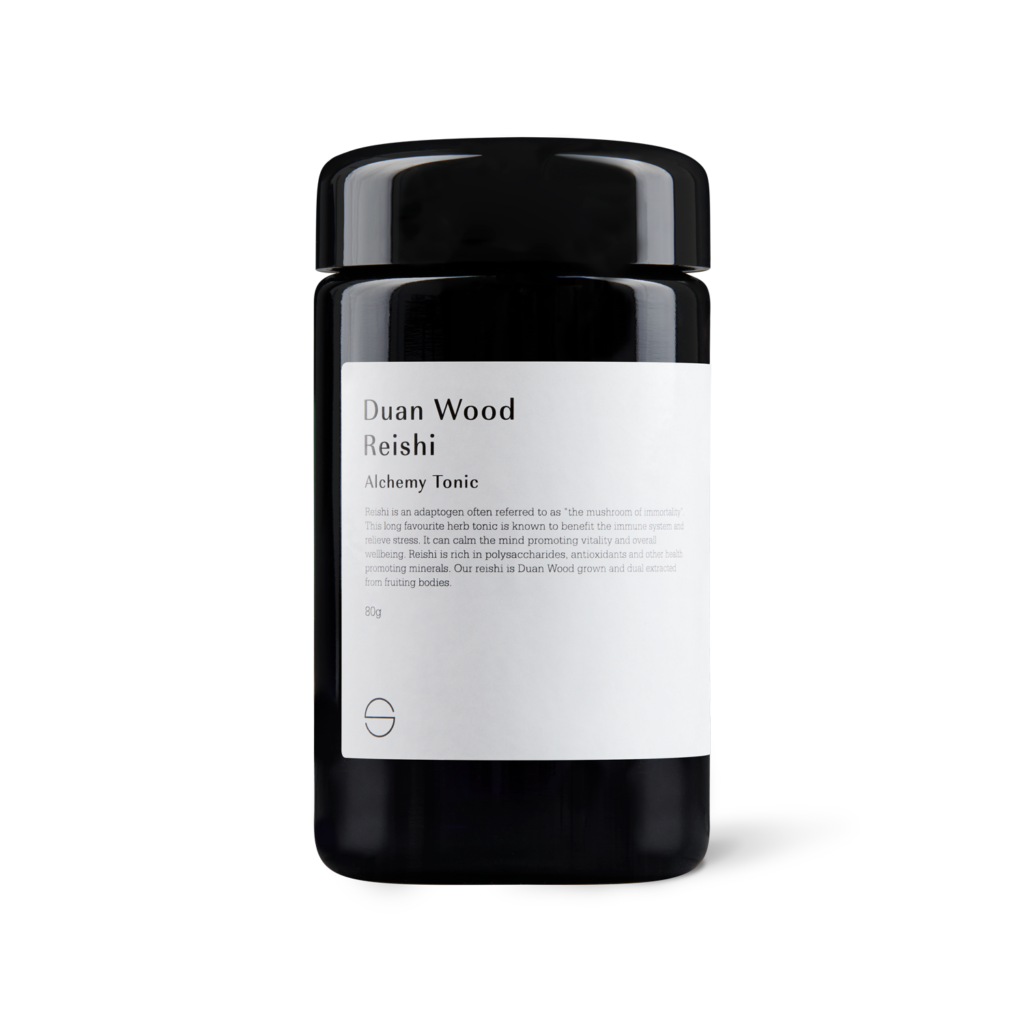
Reishi: Reishi contains polysaccharides, triterpenes, and other bioactive compounds that are believed to be responsible for their adaptogenic properties. These compounds help to modulate the immune system, reduce inflammation, and promote overall health and well-being.
Research has shown that Reishi may improve immune function, lower stress levels, and reduce fatigue. It is also believed to have antioxidant and anti-inflammatory properties, which may help to protect against chronic diseases such as heart disease and cancer.
In addition to its adaptogenic properties, Reishi is also known for its calming and relaxing effects on the mind and body.
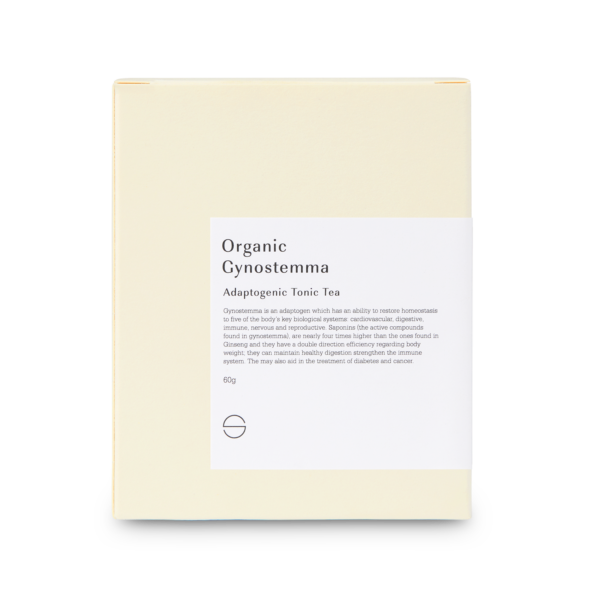
Gynostemma: The key chemical constituents responsible for Gynostemma’s adaptogenic properties are over 180 different saponins called gypenosides. These gypenosides are structurally and functionally similar to the active constituents found in ginseng root, known as ginsenosides. In fact, many of the gypenosides found in Gynostemma are identical to ginsenosides found in ginseng. This makes Gynostemma unique as it contains the broadest known range of saponins found in any one plant in nature.
The adaptogenic properties of Gynostemma have been shown to support a variety of bodily functions, including immune function, cardiovascular health, and cognitive function. It has also been shown to have anti-inflammatory and antioxidant properties, which can help protect against cellular damage caused by stress and environmental factors.
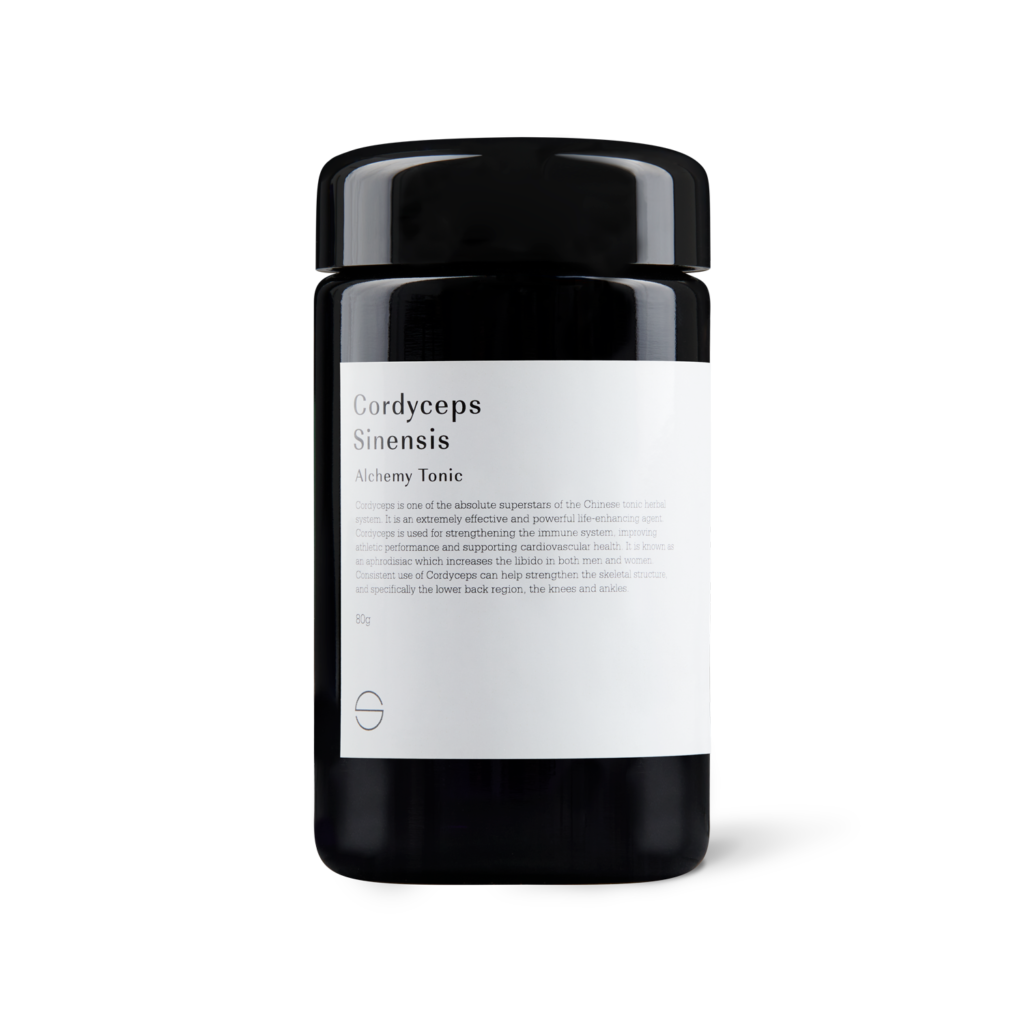
Cordyceps: Cordyceps contains unique compounds such as cordycepin, adenosine, and polysaccharides that help to regulate and balance the body’s stress response. These compounds have been shown to have anti-fatigue, anti-inflammatory, and antioxidant effects, making cordyceps a potent adaptogen.
Cordyceps is particularly beneficial for athletes and those who engage in physical activity as it helps to increase oxygen uptake, improve lung function, and enhance endurance. It also supports healthy immune function and may have anti-aging benefits.
In addition to its physical benefits, cordyceps has also been shown to have positive effects on mental health. It can help to reduce stress and anxiety, improve cognitive function, and enhance overall mood.
We have cordyceps Sinensis and cordyceps Militaris. They both contain polysaccharides, cordycepin, and adenosine, but in different proportions.
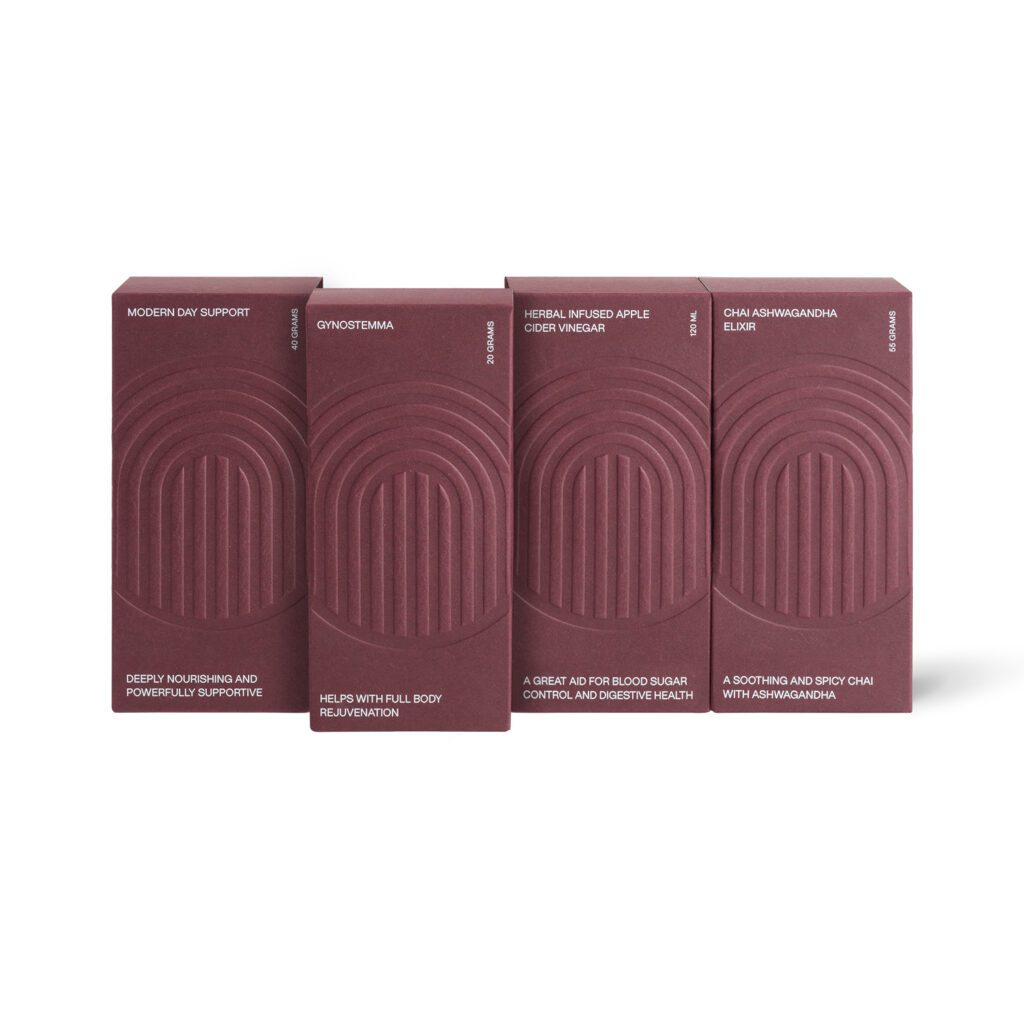
Daily rejuvenation kit: Try a sample size of selected herbs and functional food to support your adaptability.
Contains Modern day support, Gynostemma, Herbal infused apple cider vinegar, Chai ashwagandha elixir
Reference:

A Sicilian-style granita for hot days and hydrated cells When
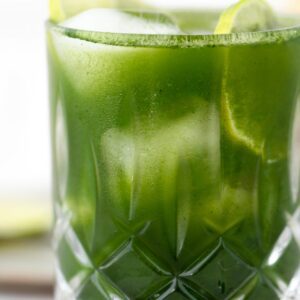
Ashitaba (Angelica keiskei) is often described as a “longevity herb.”

In our modern wellness landscape, “biohacking” often evokes images of
Copyright Shoku Iku © 2024 | All Rights Reserved.
The statements on this website have not been evaluated by the TGA or FDA. These products are not intended to diagnose, treat, cure or prevent any disease.
Sign up to receive your discount.